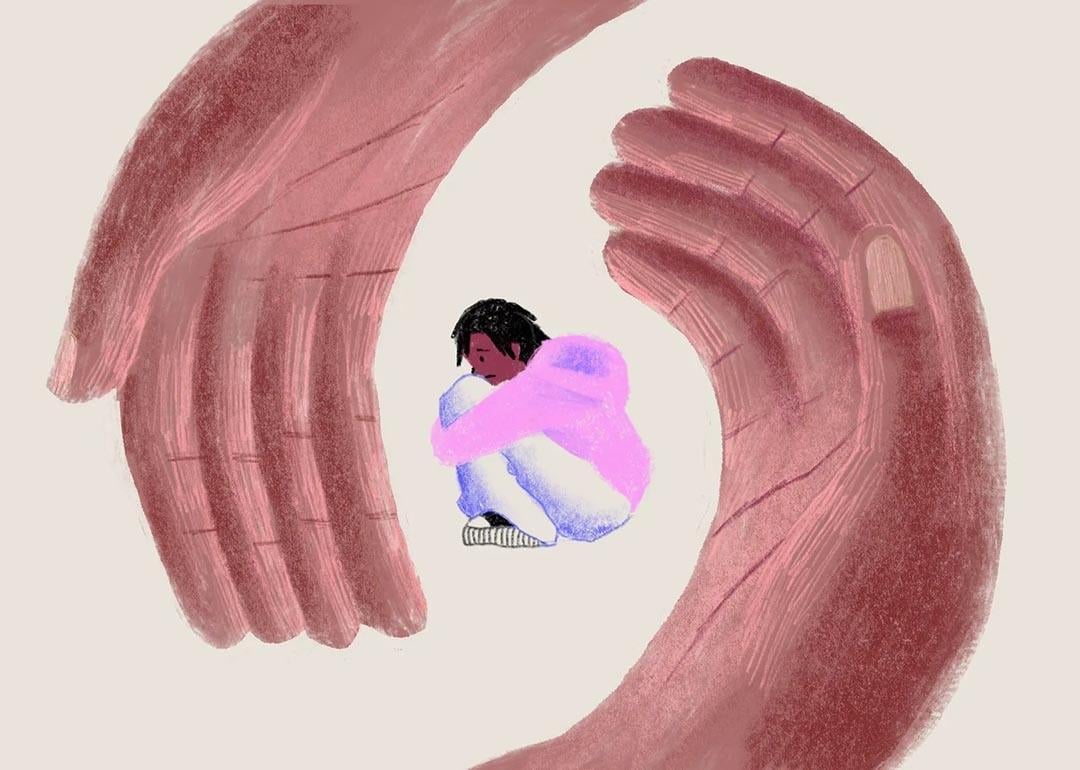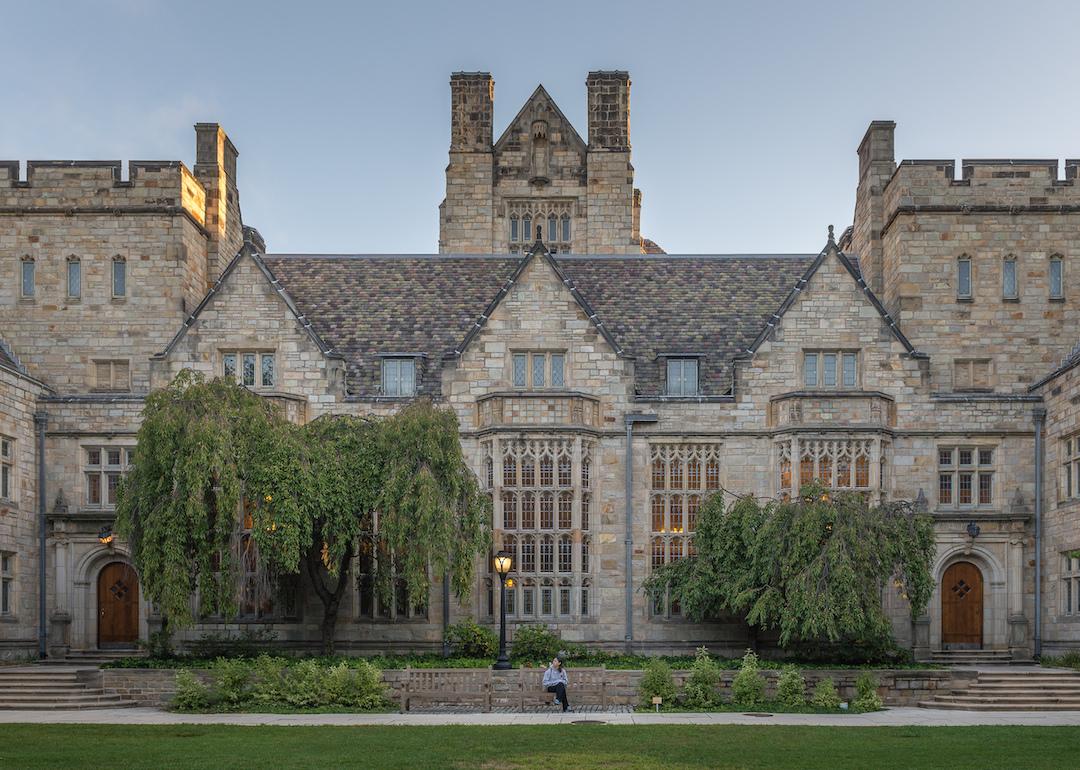
New studies show how Black LGBTQ+ youth navigate discrimination. Advocates are mapping out ways to help
This story was produced by The 19th and reviewed and distributed by Stacker Media.
New studies show how Black LGBTQ+ youth navigate discrimination. Advocates are mapping out ways to help
Twenty-one percent of Black trans, nonbinary and questioning youth have made a suicide attempt in the last year, nearly half said they felt unsafe at school, and 64 percent said they had encountered transphobia, according to two recent reports that advocates say should serve as a call to action for LGBTQ+ communities. The 19th takes a closer look at these reports.
At the end of February, The Trevor Project, an LGBTQ+ youth crisis organization, released new data on the mental health of Black LGBTQ+ youth. The report pulls together responses from more than 1,500 kids who were part of its larger 2023 survey that examined mental health among queer youth.
Several days later, the Human Rights Campaign (HRC), the country's largest LGBTQ+ advocacy organization, published separate data on how LGBTQ+ Black youth are navigating relationships in their lives as they come out.
Both reports detail the challenges Black LGBTQ+ youth face, and Derrick Matthews, director of research and science at the Trevor Project, said they offer important information on how to support youth.
"I know a lot of folks are really stepping up to the plate to work with Black LGBTQ+ youth, and I really hope, if it wasn't already, this puts on their radar screen the importance of helping people deal with the effects of multiple types of discrimination," Matthews said.
While both reports highlight treacherous odds facing Black queer kids presently, they have also started to lay down a roadmap for a different future. The findings have advocates thinking and strategizing on new ways to help Black queer youth. Matthews thinks the difference comes down to community.
"We live in a very racialized society," he said. "Folks largely grow up around people of a similar race to them. But we can't necessarily say the same is true for folks who are not heterosexual, or are transgender or nonbinary or questioning."
Matthews' theory is backed by past studies. Last year the Trevor Project found that familial support could dramatically cut a young Black queer person's suicide risk. While the recent report showed that transphobia and homophobia put kids at risk of suicide, racism alone did not.
"Although over half (55 percent) of all Black LGBTQ+ young people in our sample reported experiencing racial discrimination in the past year, we did not find any association with experiences of racial discrimination and suicide attempts," the report states.
"That was certainly surprising for me, given that there's a lot of literature that links experiences of racial discrimination, to all sorts of poor mental health outcomes," Matthews said.
The HRC study showed that while most young people have LGBTQ+ supportive friends, many lack supportive adults. While 82 percent reported they were out to at least someone in their immediate family, 59 percent said they had experienced some form of rejection from their parents. Only 58 percent of students were out to their teachers or school staff.
"This report reinforces the unfortunate disposition of many Black LGBTQ+ students," said Chauna Lawson, the HBCU (Historically Black College and University) program associate director for HRC. "They are challenged with navigating racism within LGBTQ+ spaces while simultaneously being met with homophobia and transphobia within the Black community."
Nearly half (49 percent) of Black trans youth said they felt unsafe at school. Fifty-eight percent reported experiencing racism, and 64 percent said they had encountered transphobia.
Advocates say that a near-constant flood of anti-LGBTQ+ bills in state legislatures the past four years has poisoned the climate on many middle school and high school campuses where queer youth have been reporting increasing rates of harassment. Last month, nonbinary 16-year-old Nex Benedict died in Oklahoma after a confrontation with older students, allegedly following anti-transgender bullying.
The American Civil Liberties Union says it is tracking at least 475 anti-LGBTQ+ bills filed this year alone.
Experts say that supporting Black queer youth means creating safe spaces that embrace them fully. They want non-LGBTQ+ organizations to become more welcoming and for LGBTQ+ organizations to address barriers around race that make it difficult for kids of color to use their services.
"I think this is also especially a call to action for faith communities to double down on things like supporting Black queer youth in their communities and making sure that they feel safe and included," said Charleigh Flohr, associate director of public education and research at the HRC Foundation.
Ka'Riel Gaiter, director of services for the Chicago-based LGBTQ+ nonprofit Youth Empowerment Performance Project, said safe spaces for very vulnerable queer youth in their city increasingly enforce rules that sometimes make it hard for kids to access services — like requiring IDs for entry. IDs can prove to be unattainable for youth who haven't been able to update their names or gender markers or who are experiencing homelessness.
"I see them experience discrimination on a systemic level," Gaiter said. "There are no specific spaces anymore that are implementing harm reduction methods and trauma-informed methods of care that will actually meet these people where they are when they walk through their doors to receive services."
Despite facing intersecting discrimination, the youth in the HRC report expressed resiliency and pride, Flohr said, citing a finding that 97 percent of Black queer youth are out to other LGBTQ+ peers.
"Despite high levels of bullying, despite experiencing rejection from people, most if not almost all Black LGBTQ youth are proud of their queer identities." Flohr said. "It shows a tremendous amount of strength and resiliency that I think everyone can learn from."



